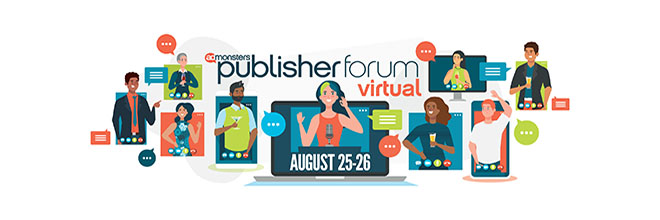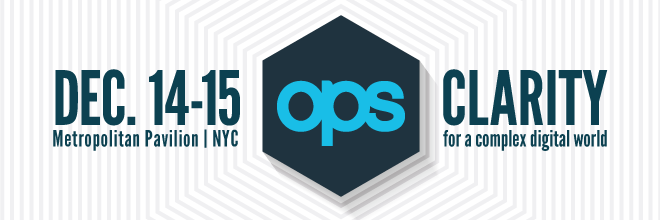| Ad Industry Voltron Forms to Defend Advertising’s Future |

Image source Netflix
|
| Led by the ANA’s Bill Tucker as Executive Director, the Partnership for Responsible Addressable Media, a superpower ad industry conglomerate—including leading advertising trade associations (4A’s, ANA, IAB, IAB Tech Lab, NAI, WFA), brands (Ford, GM, IBM, P&G, Unilever), agencies (UM, Publicis), pubs (NBC Universal) and adtech (LiveRamp, MediaMath, The Trade Desk)—has banded together in Voltron-like fashion to bring together four working groups focusing on business practices; technical standards; privacy, policy and legal considerations; and communication and education. "In the ancient story of the Tower of Babel, the city collapsed because its inhabitants lost the ability to speak a common language," said Tucker, in announcing the Partnership. "The digital advertising industry faces a comparable challenge around addressability today, as recent changes announced by operating systems, browsers, and other technologies, if implemented, will significantly impact the traditional marketplace language of cookies and mobile IDs. The Partnership was created to serve as a collaborative forum for our industry to ensure addressability standards that preserve privacy, provide a consistent and effective framework for advertisers, and enrich the consumer experience." The mega group’s stated mission is to “advance and protect critical functionalities like customization and analytics for digital media and advertising, while safeguarding privacy and improving the consumer experience.” But we should all understand that the main goal is to push back on Google’s and Apple’s walled garden approaches to the future of advertising, as Chrome plans to sunset the third-party tracking cookie draws nigh and Apple is overhauling IDFA (and let’s not forget Safari ITP). |
| There’s so much uncertainty about what the future of advertising holds, especially in the realms of measurement and audience targeting. Ad Industry Voltron plans to have serious conversations with Apple and Google about their upcoming privacy moves and how they might find a more suitable game plan that would better serve the entire industry (as well as consumers). Something that would be more universal in its approach. According to Stu Ingis, Chairman of Venable LLP, who will lead the Partnership’s legal and policy working group, “These companies are taking huge positions that impact the entire economy—the entire media ecosystem—with no real input from the media ecosystem. If the assertion is that there needs to be more privacy, that ought to be talked through in a very concrete way.” This reminds us of a recent article we wrote about the W3C’s governance process, which focused on the concerns of smaller companies voices not being heard in building the future of the advertising ecosystem (we’ve even heard that those most impacted by privacy changes—pubs and advertisers—voices are sorely missing from the conversation.) Will this new jumbo organization manage to level the playing field? Such miracles could happen IRL. But while waiting on the mysteries of advertising’s privacy forward future to be solved, pubs should check out their options for working with an identity partner and start looking to tackle addressability from that angle. |
| Programmatic In-Housing Goes Worldwide |
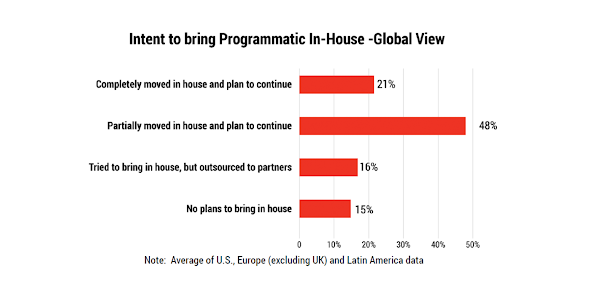
Image source IAB
|
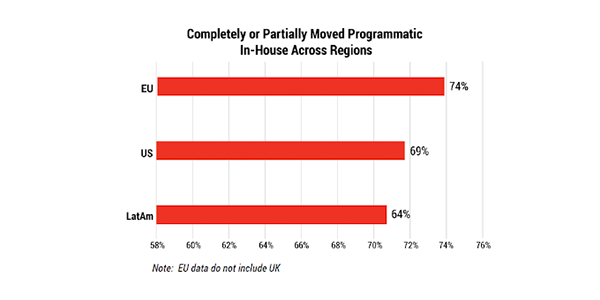
Image source IAB
|
| While we’ve heard a lot of arguments at AdMonsters events (we have a big one of those coming up soon, BTW) about what exactly it means for brands to bring programmatic in-house—Bringing on a consultant or specialist? Integrating a buying platform?—there’s no denying it’s a real trend… And it’s happening all around the world. The new IAB 2020 International Report on Programmatic In-Housing—brought to us in part by the IAB Programmatic+Data Center and Accenture Interactive—finds that 48% of brands surveyed have partially moved the programmatic into their own garages while 21% have gone the distance and are fully in-house. European brands seem particularly keen on in-housing with 74% having brought their programmatic ops fully or partially indoors; the US and Latin America respectively counted 69% and 64% of brands doing the same. But of course, we come back to the question of what does programmatic in-housing actually mean? And seems it varies—some brands are leveraging buying platforms while others are bringing in programmatic liaisons in striking deals with third-party partners. Overall, some kind of external support is required, whether that’s an agency, tech partner, or combination. “These findings demonstrate that brand need for external partners is not being eliminated,” according to the report. “Rather, it may suggest the need for specialty expertise and operational support to scale personalization.” |
| Increasingly programmatic is a relationship game, so publishers need to know who is pulling the levers on the buy-side and how can they work that to their advantage. And then there’s the pandemic mystery—certainly, brands are limiting their ad spend at the moment, but they’re going to need to come back in force eventually. As they re-evaluate their marketing and advertising strategies, potentially with cuts to budgets, are they going to be willing to invest in programmatic teams when they could just push it back to agencies? Maybe not. We’ve actually seen evidence in a few reports now that brand marketers are still evaluating and incorporating ad tech. Some brands have realized how valuable an agile programmatic team can be in a crisis. And consider that there was a serious talent war on the buy-side pre-pandemic—agencies are laying off talented people that brand programmatic teams can easily scoop back up on their feet. COVID may actually be encouraging brands to use the spend slowdown to build up their programmatic muscle and reshape the buy-side when it bounces back. |
| Google Officially Joins the IAB TCF 2.0 Global Vendor List | ||
| As the IAB Europe Transparency and Consent Framework (TCF) 2.0 upgrade deadline quickly approaches, Google has officially joined the IAB TCF 2.0 global vendor list (GVL) for Google Advertising Products. Observers have been awaiting the addition of Google to the GVL for the past few months after Google announced they would sign on as a vendor for TCF 2.0. Google is now listed as an active vendor on the GVL and can, therefore, read consent strings capture using IAB TCF 2.0. This is big news to publishers and advertisers who use Google as part of their advertising activities and have been preparing to upgrade to TCF 2.0 before August 15 when support for version 1.1 will end. |
||
| Google plays a major role in the media and advertising industry as one of the leading ad tech vendors. With Google’s integration, ads that are delivered by Google will now comply with the framework directly, without any additional configuration. With OneTrust’s support for IAB TCF 2.0, all existing customers who leverage the framework will be able to work with Google as a vendor automatically. Google will now be part of the list of vendors that organizations can choose from within their PreferenceChoice CMP. When it comes to finding a CMP partner for GDPR compliance and the IAB TCF 2.0 framework, it’s imperative to work with a partner that not only enables compliance, but also one that has unique capabilities and easy implementation while ultimately providing a seamless consumer experience. Here are a few features that we recommend looking into when deciding on a CMP for IAB TCF 2.0:
|
||
|
||
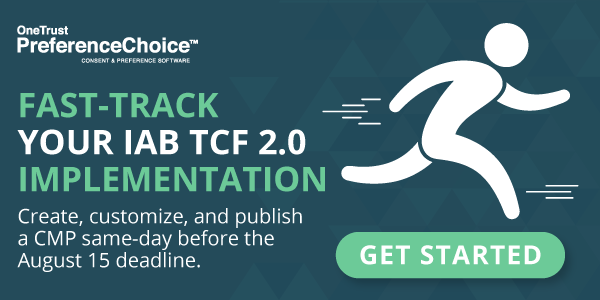 |
| Uh Oh, Ad Spend Actually May Not Return Until 2023 |
| So a couple of weeks ago we reported that ad spend won’t return until 2021, but the latest news according to a recent Forrester COVID-19 Update is that it could very well take until 2023 until we see any sort of rebound. The marketing research company predicts that we’ll see a 25% decline in ad spend from $236bn in 2019 to $177bn this year, with no recovery in sight until 2023. Amid the pandemic, agencies have significantly slashed staff, resulting in much leaner, meaner operations and creative output. In 2020 and 2021, we could see as much as 52,000 agency roles cut. Critics are saying it’s a much-needed correction to a bloated industry that was preoccupied with glitz and sizzle more than making ads that provided connection and meaning. As one executive told The New York Times, “There’s a big correction — a lot of these teams have gotten too big and too bloated,” he said. “They’re now having the realization that they can do twice as much with half as many people.” |
| While we definitely don’t applaud people losing their livelihoods, we too can see how marketers have been misguided into thinking that more literally means more. The pandemic and BLM are now causing marketers to look internally and more deeply at their values and how they align with consumer perceptions. Consumers’ habits are rapidly shifting these days. Value-based brands that can provide consumers with more convenience, will win out the trust game garnering access to more personal data. Instead of a correction maybe this is really a time of reinvention where brands finally focus on people-first marketing strategies and first-party data plays a greater role in getting to know customers more intimately. Maybe we’ll see a larger focus on storytelling that caters to consumers’ wants and desires, resulting in wider representation and better ROI. It looks like the smart play for pubs—at least those with the data to pull it off—is to position themselves as true strategic partners to brands as the tides continue to change. |
 |
||||
|
||||
 |
||||
|
||||
 |
||||
|







